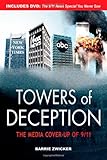The Grey Whale is not one of the larger whales, but adults can reach 55ft. It has no dorsal fin, but is distinguished by a series of low bumps on the back near the tail. It has a smallish head (in proportion to the body), with two or three shallow grooves on the throat, and two blow-holes. The baleen, the means by which whales filter small crustaceans from mud and water, is hair-like, short and thick, with coarse, frayed inner edges. Sometimes the snout is seen covered in mud, or with barnacles adhering to it. These appear to irritate it, and may be a reason they seek out brackish, shore water to dislodge them. The body streamlining is also affected.
This whale is probably best known today for the extraordinary annual migration between the Arctic feeding grounds, and the breeding and calf-rearing grounds off the coast of Baja California. Grey whales undertake the longest migration of any known mammal, and researchers have suggested that these epic journeys could also be driven by the threat of predation from killer whales.
Its habit of venturing within sight of land to breed almost caused its extinction. In the days of intensive whaling, in the 1870’s, something remarkable was noticed. The whales had changed their migration habits and were avoiding the coastal areas. By what means could whales who experienced the dangers posed by whalers near the coasts communicate this to others within the population? At the same time, they were known as ‘devil-fish’ among whalers, and had a reputation for fierceness and aggression, attacking boats with little provocation. They swim faster than the similarly sized sperm whale, and once harpooned, would charge frantically about, capsizing boats and drowning men..










